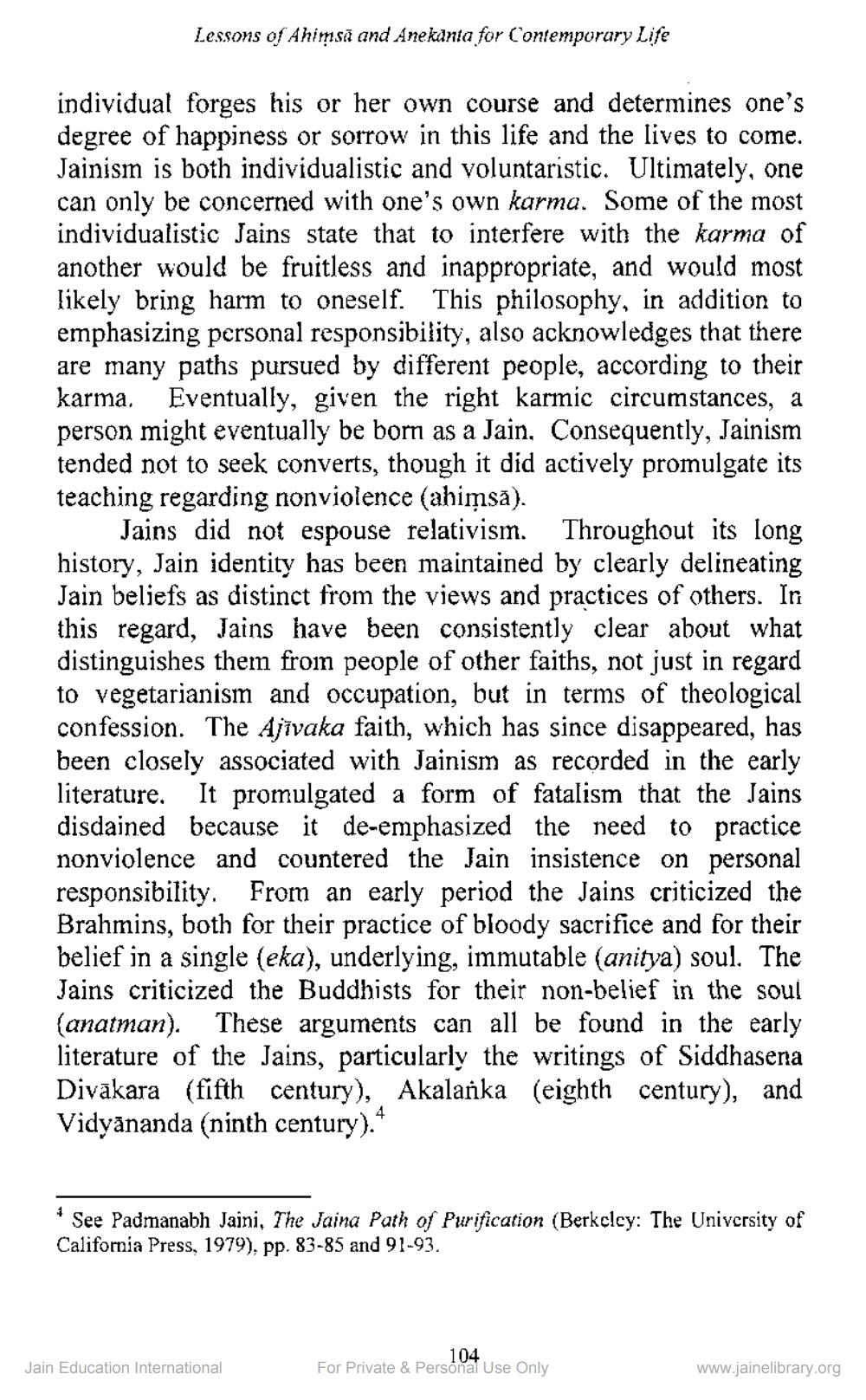Book Title: Religious Dissonance and Reconciliation The Haribhadra Story Author(s): Christopher Key Chapple Publisher: Z_Lessons_of_Ahimsa_and_Anekanta_for_Contemporary_Life_014006.pdf View full book textPage 3
________________ Lessons of Anims, and Anekanta for Contemporary Life individual forges his or her own course and determines one's degree of happiness or sorrow in this life and the lives to come. Jainism is both individualistic and voluntaristic. Ultimately, one can only be concerned with one's own karma. Some of the most individualistic Jains state that to interfere with the karma of another would be fruitless and inappropriate, and would most likely bring harm to oneself. This philosophy, in addition to emphasizing personal responsibility, also acknowledges that there are many paths pursued by different people, according to their karma. Eventually, given the right karmic circumstances, a person might eventually be born as a Jain, Consequently, Jainism tended not to seek converts, though it did actively promulgate its teaching regarding nonviolence (abiņsā). Jains did not espouse relativism. Throughout its long history, Jain identity has been maintained by clearly delineating Jain beliefs as distinct from the views and practices of others. Ini this regard, Jains have been consistently clear about what distinguishes them from people of other faiths, not just in regard to vegetarianism and occupation, but in terms of theological confession. The Ajīvaka faith, which has since disappeared, has been closely associated with Jainism as recorded in the early literature. It promulgated a form of fatalism that the Jains disdained because it de-emphasized the need to practice nonviolence and countered the Jain insistence on personal responsibility. From an early period the Jains criticized the Brahmins, both for their practice of bloody sacrifice and for their belief in a single (eka), underlying, immutable (anitya) soul. The Jains criticized the Buddhists for their non-belief in the soul (anatman). These arguments can all be found in the early literature of the Jains, particularly the writings of Siddhasena Divākara (fifth century), Akalanka (eighth century), and Vidyānanda (ninth century).* * See Padmanabh Jaini, The Jaina Path of Purification (Berkcley: The University of California Press, 1979), pp. 83-85 and 91-93. Jain Education International 104 For Private & Personal Use Only www.jainelibrary.orgPage Navigation
1 2 3 4 5 6 7 8 9 10 11 12 13 14 15 16
